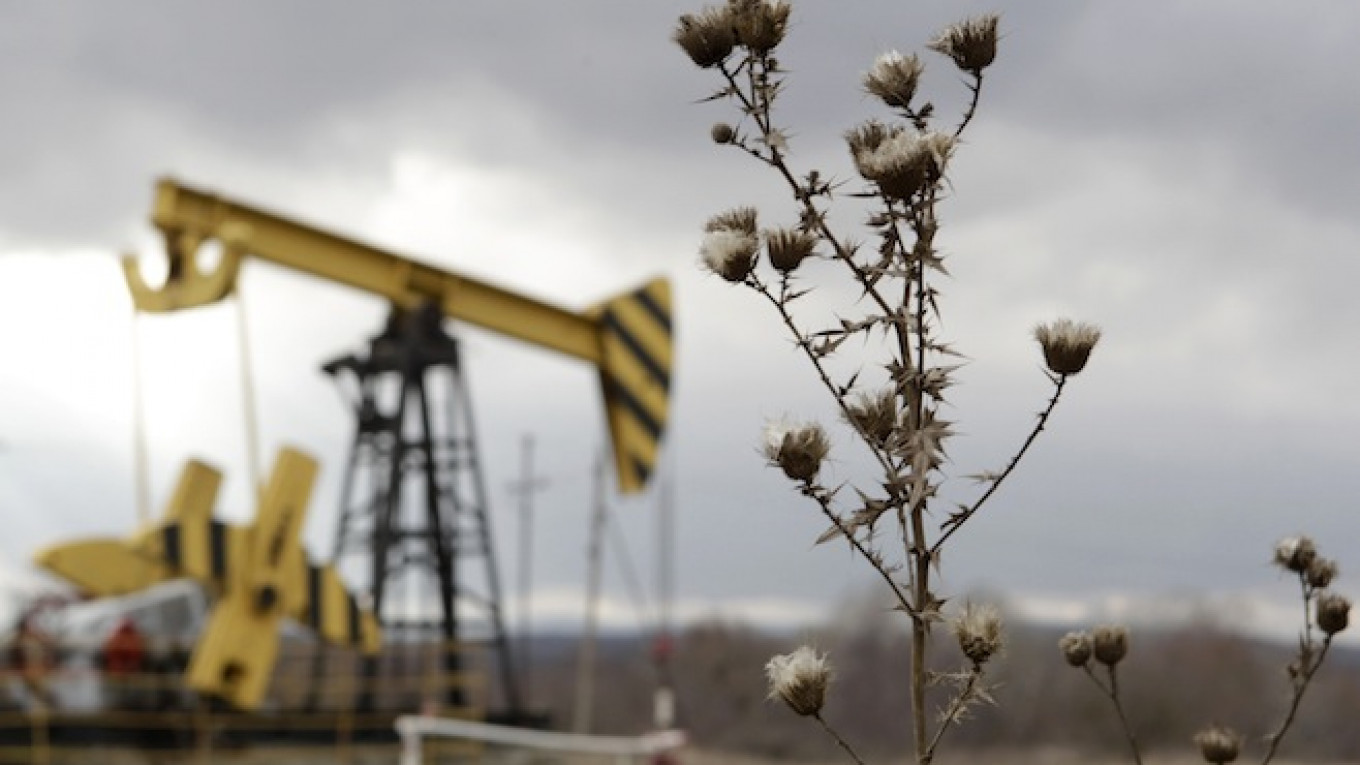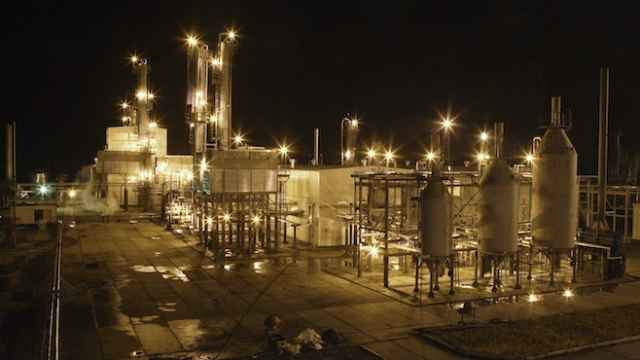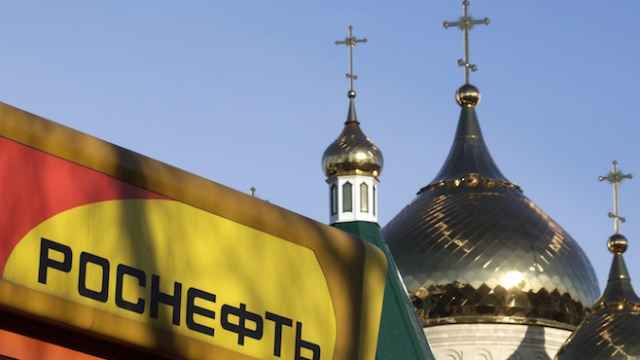Russia's top oil producer Rosneft said Monday that it had met a $7 billion loan repayment, partially easing fears among investors that Western sanctions banning major Russian firms from access to European and U.S. capital could prompt mass defaults.
Shares in the company rose 2.5 percent in morning trade after Rosneft confirmed it had made the payment — part of a two-year $12.7 billion loan it used to buy oil firm TNK-BP — from its own cash reserves.
Rosneft, which produces more oil than Iraq or Iran, has asked for 2.5 trillion rubles ($44 billion) from the government to help it weather sanctions and refinance its debts.
But the government is yet to decide how much money to give from the National Wealth Fund, resulting in speculation last week — denied by Rosneft -— that it was buying foreign currency on the domestic forex market.
Rosneft Chief Executive Igor Sechin said Monday: "To service its debt the company does not need to enter the currency market, because it generates enough foreign currency earnings. Surplus balances are used on the market, in such a manner."
Analysts say Rosneft is too big for the state to allow it to fail and point to its successful sale earlier this month of 625 billion rubles worth of domestic bonds — the bulk of the company's current planned debt refinancing.
"As for other companies, there is still concern, but I do not expect large-scale defaults on the public debt market," said an analyst at a major Russian bank who declined to be named.
The company continues to face a severe squeeze from a collapse in oil prices and the rapid devaluation of the ruble, which has lost 45 percent of its value against the dollar as a result of the sanctions, an approaching economic recession and a the dramatic fall in the value of oil, upon which the state budget depends.
Rosneft must make a second loan repayment of $6.9 billion in February.
Its bridge loan providers were BNP Paribas, Bank of America Merrill Lynch, Bank of Tokyo-Mitsubishi UFJ, Barclays Bank, Citi, Credit Agricole CIB, ING Bank, Intesa Sanpaolo, JP Morgan, Mizuho Corporate Bank, Natixis, Societe Generale and UniCredit, according to Thomson Reuters LPC data.
A Message from The Moscow Times:
Dear readers,
We are facing unprecedented challenges. Russia's Prosecutor General's Office has designated The Moscow Times as an "undesirable" organization, criminalizing our work and putting our staff at risk of prosecution. This follows our earlier unjust labeling as a "foreign agent."
These actions are direct attempts to silence independent journalism in Russia. The authorities claim our work "discredits the decisions of the Russian leadership." We see things differently: we strive to provide accurate, unbiased reporting on Russia.
We, the journalists of The Moscow Times, refuse to be silenced. But to continue our work, we need your help.
Your support, no matter how small, makes a world of difference. If you can, please support us monthly starting from just $2. It's quick to set up, and every contribution makes a significant impact.
By supporting The Moscow Times, you're defending open, independent journalism in the face of repression. Thank you for standing with us.
Remind me later.






